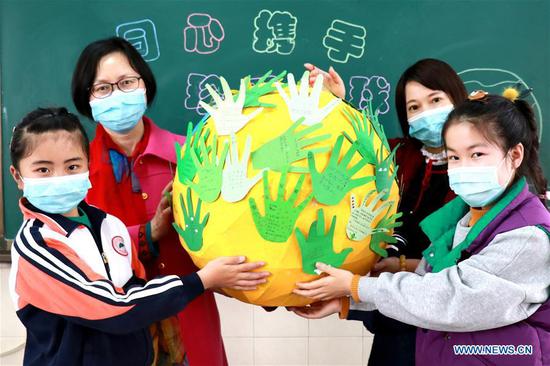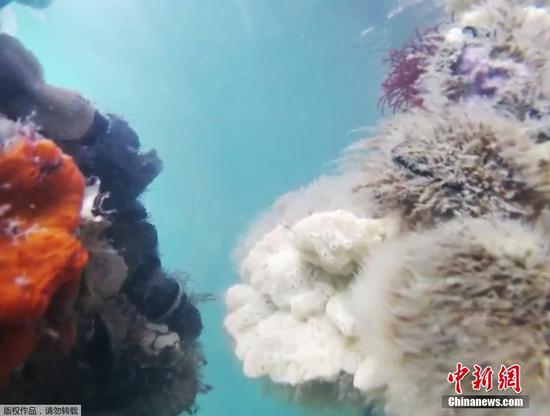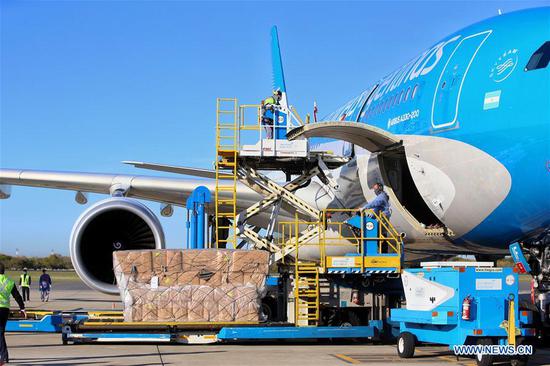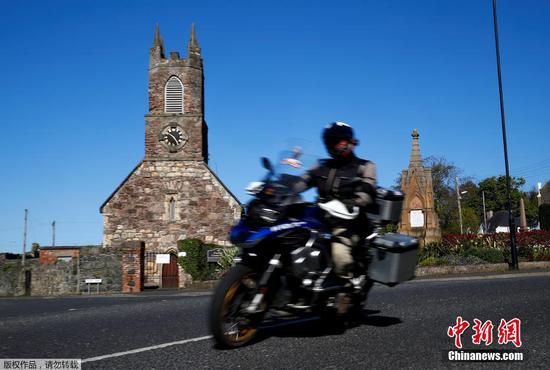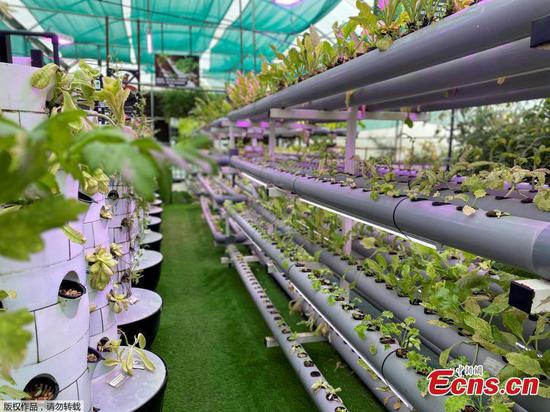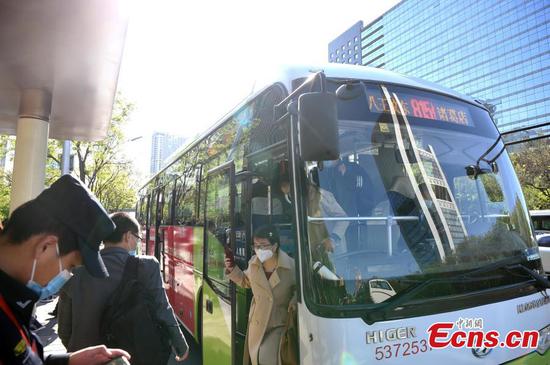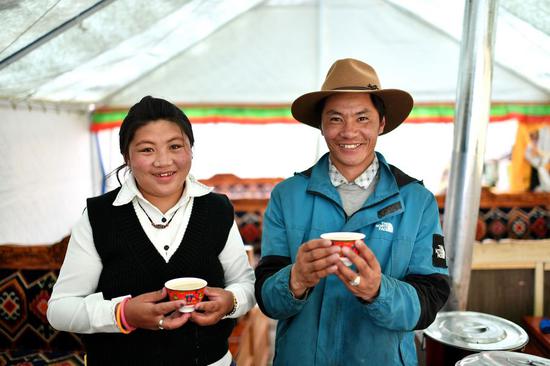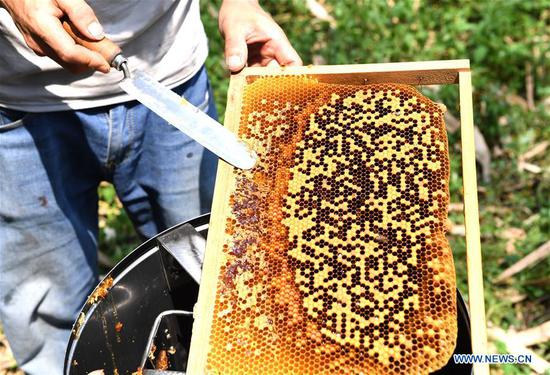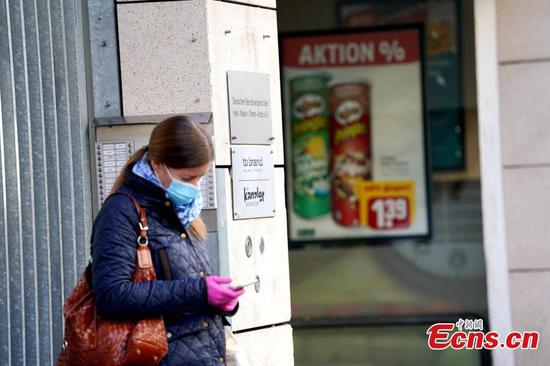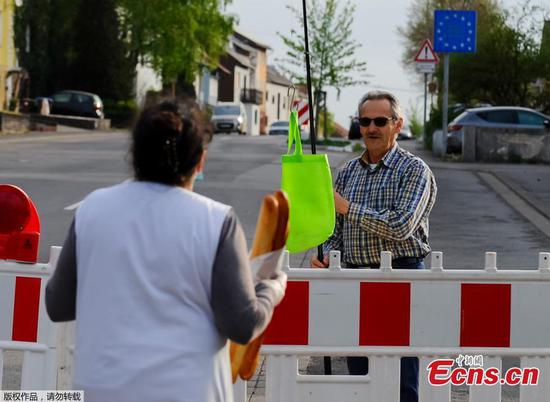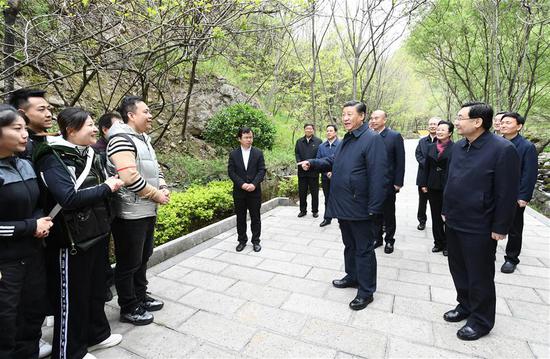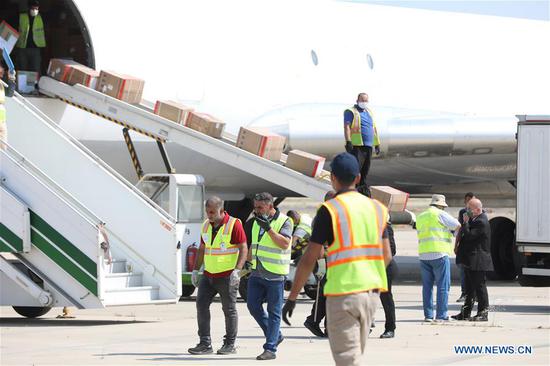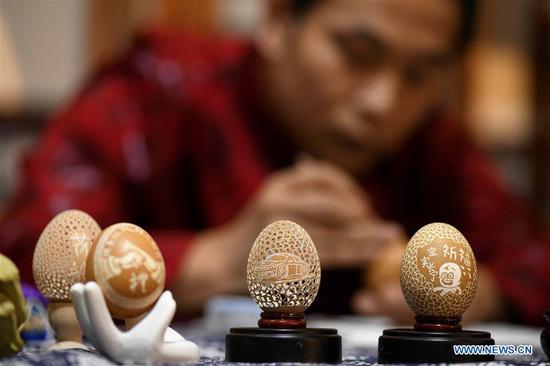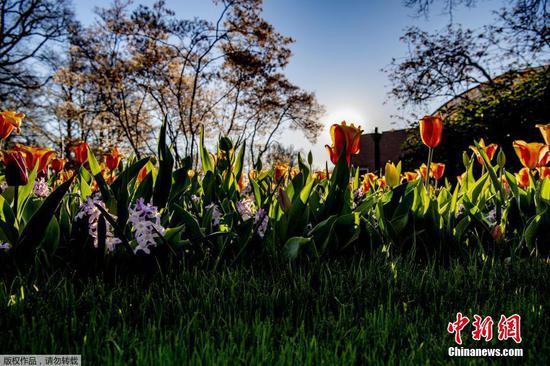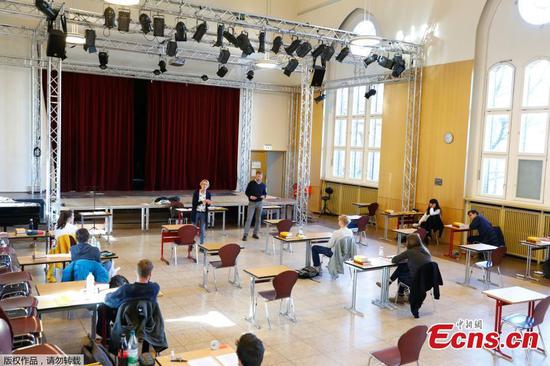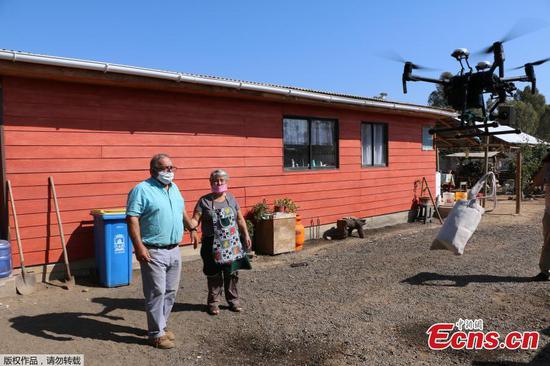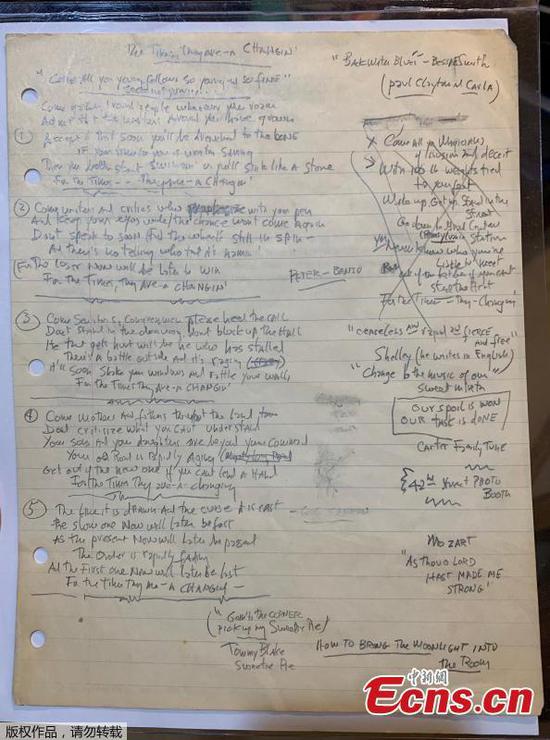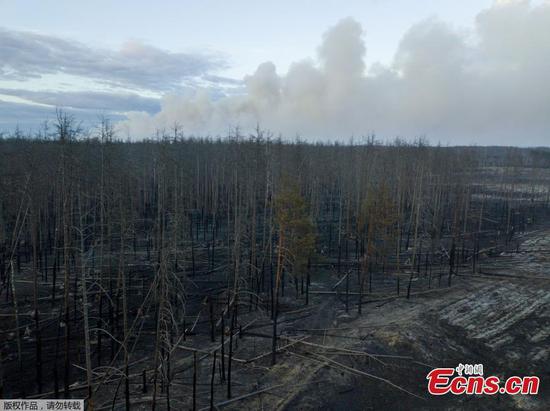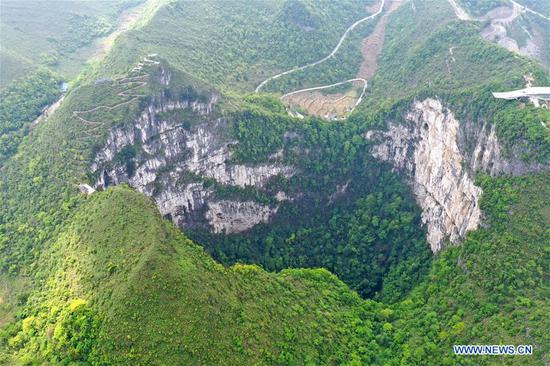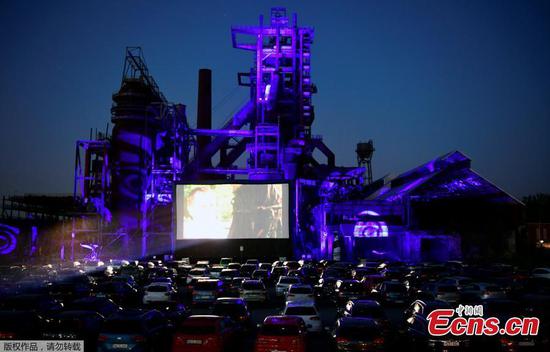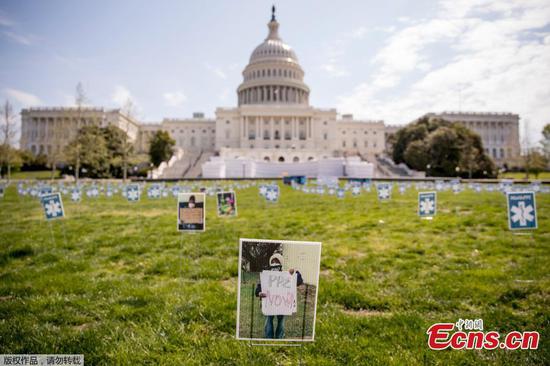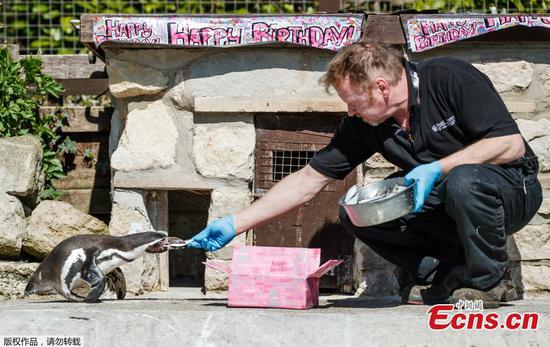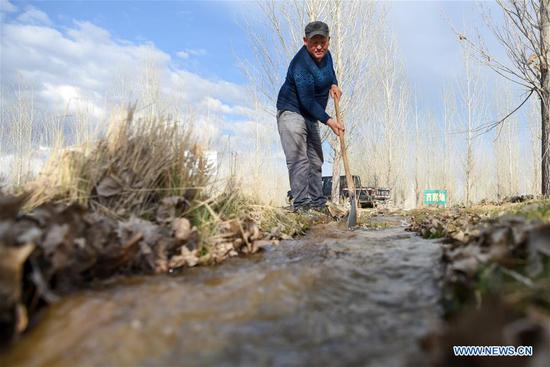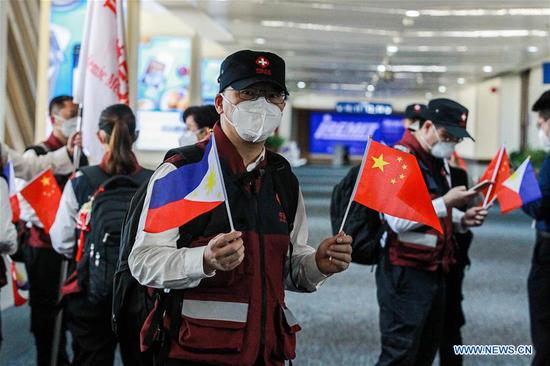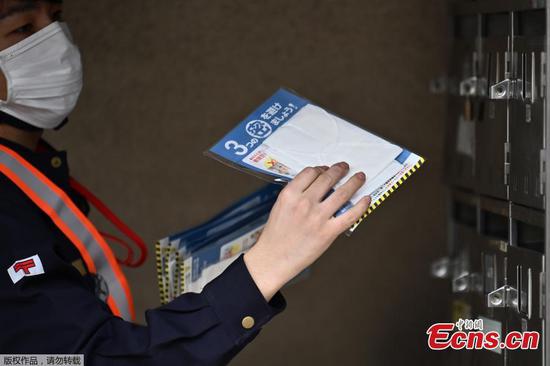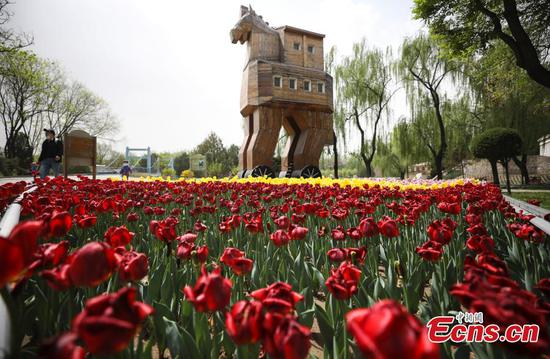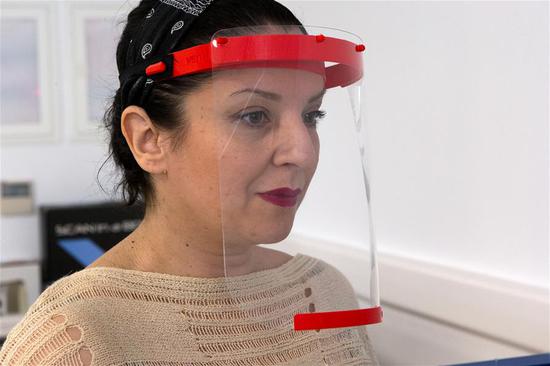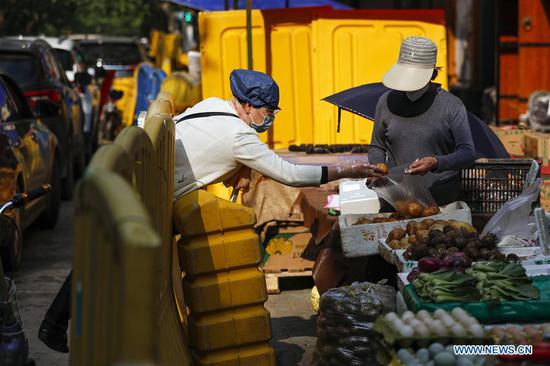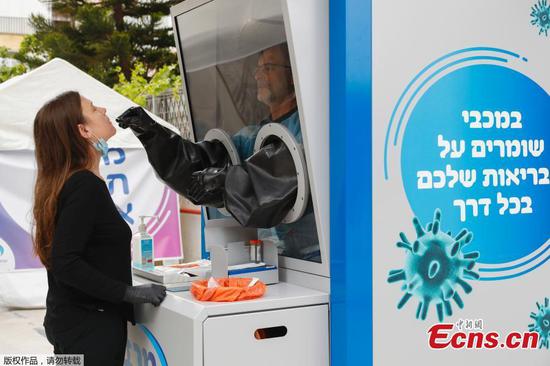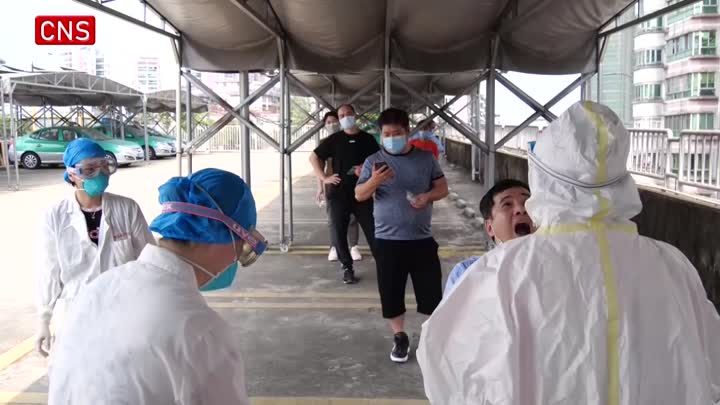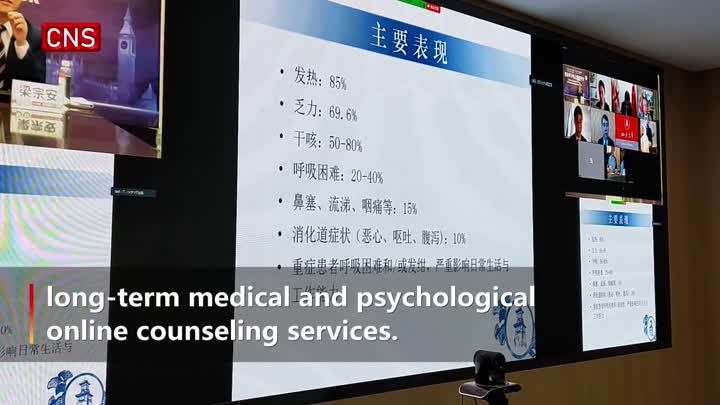
After recovering from the novel coronavirus, Xu Ming, a 95-year-old resident of Wuhan, Hubei province, said he now looks forward to living to 100. But when he was sent to the intensive care unit in mid-February, he had lower expectations, hoping just to make it back to the general ward.
On Thursday, Xu returned to the Wuhan Hospital of Traditional Chinese Medicine, where he had stayed between Feb 9 and Feb 23, to thank the medical staff there.
"I now cook for myself at home because my daughters are either still under quarantine or in other cities. It's nice to be able to take care of myself again," he said.
Xu, who once was a construction worker on the famous Wuhan Yangtze River Bridge completed in 1957, had been in good health, with no major diseases, before suddenly developing a fever and other symptoms of the novel coronavirus, such as a cough and poor appetite, on Jan 31.
He was admitted to the hospital on Feb 9 and became the oldest novel coronavirus patient there.
"He had been experiencing difficulty breathing since Feb 10. We decided to transfer him to the intensive care unit on Feb 13 because the condition of elderly patients can deteriorate very rapidly, so we had to monitor him closely," said Zhang Jun, a doctor who treated Xu.
Xu was overwhelmed after seeing so many strange machines at the ICU. "I wondered how much I had to pay to use those machines," he said.
He was told later the treatment was free.
"I often asked the doctors to take more care of other patients in worse condition, but they always said that all patients are equally important despite their age and condition," Xu said. After Xu spent three days in the ICU, his condition stabilized and he was transferred back to the general ward.
Zhang, the doctor, said that because Xu didn't react well to antiviral drugs, which can also cause more harm to the organs of elderly patients, doctors decided to use traditional Chinese medicine to boost Xu's overall immune system while also enhancing his oxygen supply.
Zhang was also in charge of a 92-year-old patient. "Both of them are recovering well, and we will keep monitoring their health condition," he said. "I'm so glad to see Xu is so energetic. It's the real bonus of being a doctor."
Of the 675 COVID-19 patients treated at the Wuhan Hospital of Traditional Chinese Medicine, 399 were older than 65, said Li Xucheng, head of the hospital's emergency department. "The treatment method for all patients is actually quite the same, but elderly patients need more care both physically and mentally," Li said.
Official data show that as of the end of Wednesday, Wuhan had registered 50,008 COVID-19 patients, and about 2,500 of them are older than 80.
"About 70 percent of the patients over 80 in the city have been discharged. The oldest recovered patient is 108," Jiao Yahui, an official responsible for medical administration and supervision at the National Health Commission, said in an interview last week in Wuhan.
She said an average of 20 percent of COVID-19 patients fall into a severe condition, but among the elderly the ratio climbed to about 40 percent.
"It's more difficult and resource-consuming to treat elderly COVID-19 patients, but we treat all people equally," she said.
By the end of Friday, Hubei had 122 hospitalized COVID-19 patients, including 27 in severe or critical condition, many of whom are elderly, according to local health authorities.
Although nearly all of the 42,000 medical workers who had come from outside the province to help Hubei fight the disease have returned home, 20 intensive care experts remain in Wuhan to help treat patients who are in severe or critical condition.









